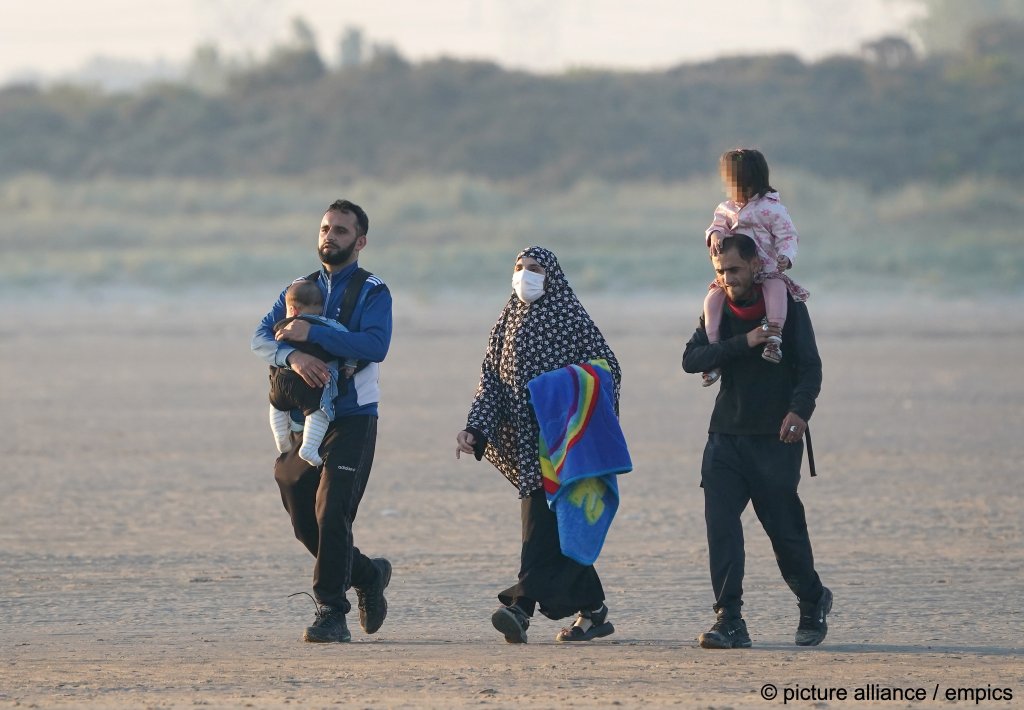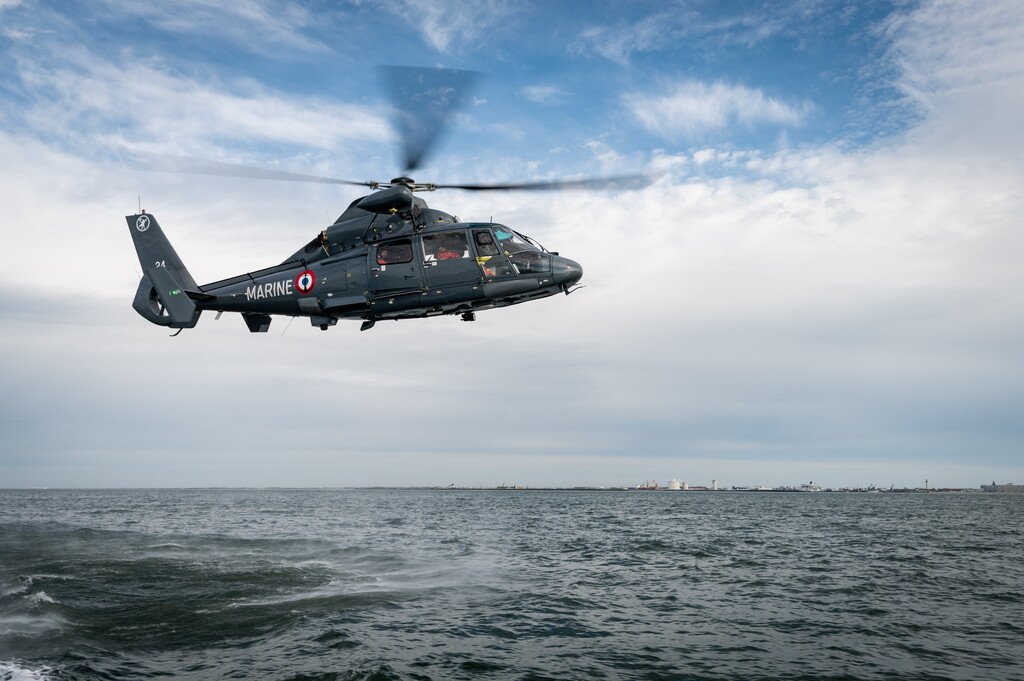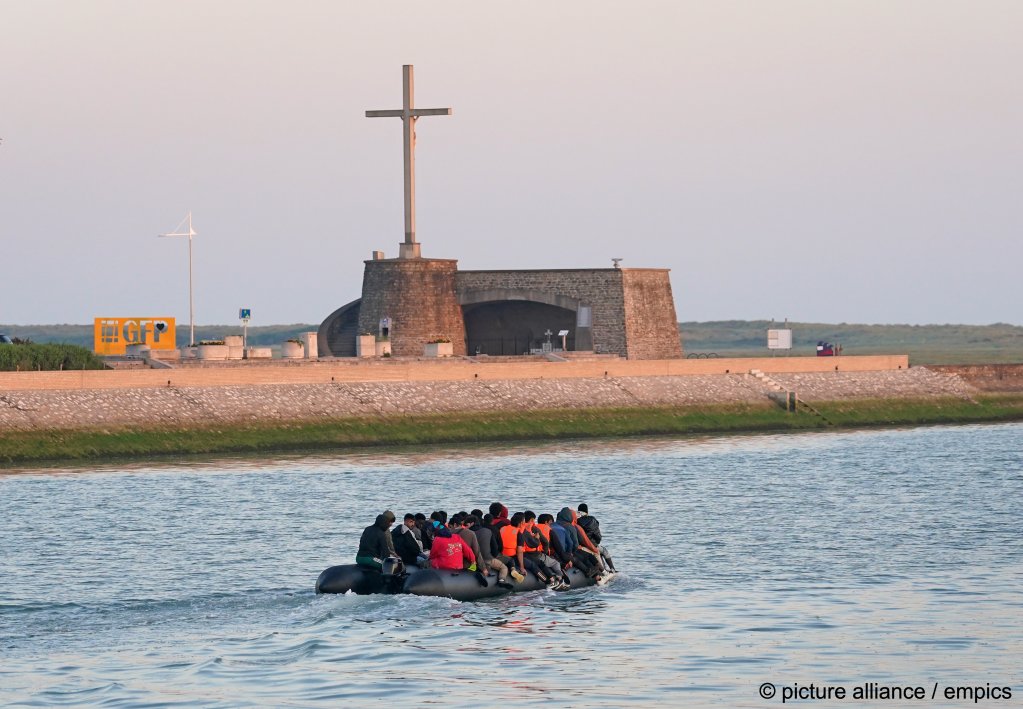Dina was just 21 when she died, crushed to death in an overcrowded migrant boat off the French coast on July 28. Her family talk of her hopes and dreams, which now lie in tatters after her death.
"She was so happy when she finally arrived on the shore and was about to board the boat," explained Dina’s family to the news agency Agence France Presse (AFP).
Dina Al Shammari did manage to board the boat, but she was crushed in the badly overcrowded vessel before it set off across the Channel.
The young woman's unconscious body, together with her mother and father, two sisters and brother, were taken off the boat by the French authorities. Around 35 others also got off, while the remaining migrants, numbering around 40, stayed on the boat which proceeded to cross the Channel to England.
Dina was declared dead a short time after she was brought ashore.
The family are Bedouins, a discriminated minority in Kuwait. They had arrived in France a month before the fatal crossing, and had already tried five times to reach the UK by boat. Each time, their attempts were thwarted by the police, writes AFP.

Also read: One dead and dozens rescued after fatal Channel crossing attempt
Among the first to board the boat
On the night of July 27/28, the family was among the first to board the boat, explained Dina’s 19-year-old sister Nour. Many others tried to get on after them, and Nour herself was almost crushed.
"We asked them if we could get off, but no one would let us," she said.
Nour and her family are being looked after by the Catholic help organization in Calais, Secours catholique. "The boat just set off, there were young men with knives who threatened everyone else if the boat didn’t set off," she said.
For more than hour, the two sisters were crying for help, but in vain. Finally, the surrounding passengers realized that Dina was "all white, with bruises around her neck." Someone called the maritime authorities.
Also read: Migrant dies in Channel as crossings continue
Dina's mother cries and dries her eyes with her headscarf
Listening to Nour retelling the story, AFP reports how her mother Amira cried, drying her eyes with her headscarf.
According to accounts from France’s maritime prefecture for the Channel and the North Sea (Préfecture maritime de la Manche et de la Mer du Nord), Dina was pronounced unconscious when she was brought ashore and she was dead a short time later.
Her other siblings, 14-year-old Fatima and 13-year-old Abdullah, had to receive medical attention when they arrived on shore, as their feet had been crushed.
Nour said she felt angry about the other passengers on board the boat, and wished they had listened to the two sisters' cries for help.
Also read: One migrant dies in Channel and 71 rescued
French investigation into crossing
French authorities, who opened an investigation into the crossing, hope to place charges for involuntary homicide and endangering the lives of others.
Dina’s mother Amira remembers her daughter's happiness and dreams as she thought about how life might be in England. "She loved life," Amira said. "She just wanted to arrive in England in the hope that she could live safely, and leave behind her all the times she has been chased by the police."

Asked whether they had heard of the anti-migrant protests currently sweeping the UK, the family told AFP they weren’t really aware of what was going on. They said they believed that life for migrants was better in England than in France, and that there would be more safety and security for them there.
Nour showed the AFP reporters a photo of Dina, smiling, wearing sunglasses, her long hair flowing freely.
Also read: UK police arrest Egyptian suspected of involvement in fatal crossing
Refused asylum in Germany
Dina’s father, Ratham, reportedly in his seventies, was a shepherd in Kuwait. The family said they had to leave because they were Bedouins and had been refused nationality in Kuwait. They are designated as "foreigners" in Kuwait, reports AFP.
They finally decided to migrate in 2021. Dina had already studied for a dental diploma in Germany, but their request for asylum was refused because they were not able to provide the documents requested by the German authorities, said Nour.
That’s when they decided to leave Germany and try to seek asylum in the UK.
Today, reports AFP, the Al Shammari family have ceased to think about their dreams for the future. Their only wish is to repatriate Dina’s body to Iraq, and they are trying to raise the 5,000 euros online needed to bring her back to her homeland.
'Migrants live in a world saturated by bad news'
Juliette Delaplace, the head of the Secours catholique mission, told AFP: "Migrants here live in a world saturated by bad news. The racist violence going on in the UK at the moment is just one more element in a landscape of sadness."
The number of people who have crossed the Channel since the beginning of the year has now surpassed 17,000, according to British government statistics.
On August 6, 355 people arrived in seven boats. No crossings were recorded on August 7. NGOs and migrant organizations working in the field on both sides of the Channel fear that the increased police intervention to try to stop smuggling gangs is making the crossings more dangerous.
Also read: Can Labour repair the UK's fragmented asylum system?
Dangers of crossing the Channel
Marie Filatre, from the Refugee Women’s Center in Calais, which is also helping support the Al Shammari family, said that police intervention is pushing people into larger and larger boats. At the same time, many boats are stopped from setting out, leading to greater numbers of people competing for a passage. This is causing overcrowding and increasing the risk of crushing or suffocation on board.

The French authorities say that apart from the overcrowding, the Channel itself is a dangerous stretch of water. It is one of the busiest shipping lanes in the world, registering strong winds and dangerous currents more than 120 days of the year. Even in summer, the water temperature is such that most people can’t survive for long if they are not rescued.
This was translated and largely based on an AFP story in French
